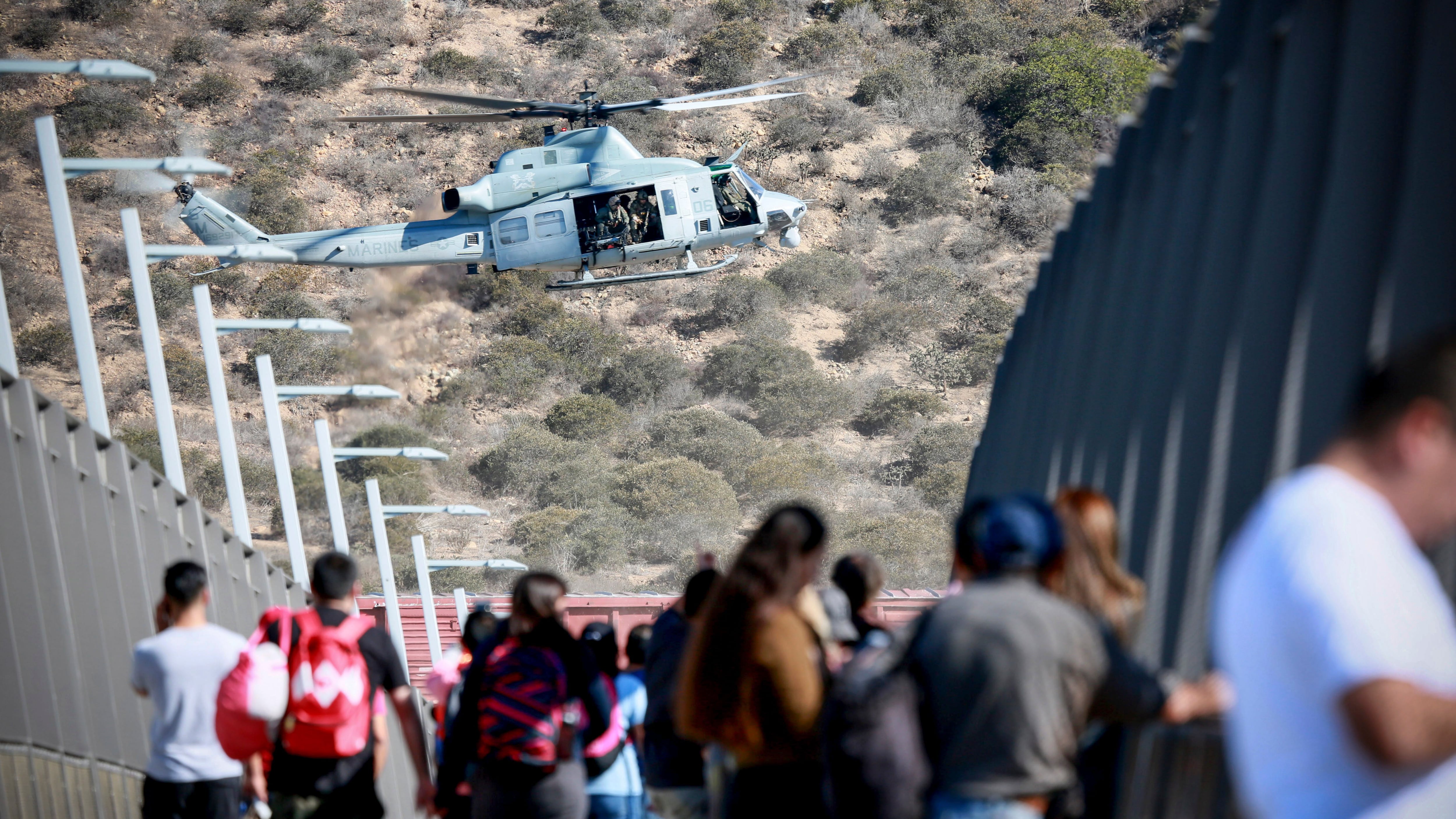The first hearings have started for the Marines charged with various offenses related to to an alleged human smuggling ring at the U.S.-Mexico border, the Marine Corps has confirmed.
So far, an investigator with the Naval Criminal Investigative Service testified that there was no evidence the Marines smuggled anyone over the U.S.-Mexican border.
At a second motions hearing a judge ruled that the mass arrest of 16 Marines at a battalion formation was an example of unlawful command influence, the San Diego Union-Tribune first reported.
The Marine Corps confirmed the Article 32 hearing for Cpl. Trenton Elliot, who was charged with transportation of unauthorized immigrants and conspiracy to transport unauthorized immigrants, was the first held for the 13 Camp Pendleton, California, Marines that were charged.
Article 32 hearings are required to be held before a military defendant can be referred to a general court-martial.
RELATED

The hearing, similar to a preliminary hearing in the civilian justice system, is meant to determine if there is enough evidence to merit a general court-martial or if a lower level process like a special court-martial or nonjudicial punishment is warranted. It also is possible for some or all the charges to be dropped at the hearing.
All the Marines are being tried separately and should have their hearings held one by one in the near future, but a complete schedule has not been created yet, 1st Lt. Cameron Edinburgh, a Marine Corps spokesman, told Marine Corps Times.
At the hearing, Naval Criminal Investigative Service Special Agent Katelyn Thompson testified that none of the Marines were being accused of smuggling anyone across the border, but rather moving unauthorized immigrants within San Diego County, California, the San Diego Union-Tribune reported.
Thompson added that NCIS has no evidence any unauthorized immigrants were transported other than the three found traveling with two Marines near the U.S.-Mexican border, according to the newspaper.
Lance Cpl. Byron Darnell Law II and Lance Cpl. David Javier Salazar-Quintero were arrested by Border Patrol Agents July 3, about 7 miles from the border with three undocumented immigrants in the back seat, Marine Corps Times previously reported.
The arrests triggered an investigation that ultimately led to the arrest of 16 Marines at a battalion formation July 25.
Thirteen Marines, only 10 arrested at the battalion formation, were eventually charged for alleged crimes associated with the original human smuggling arrests.
The allegations against the 13 Marines include distribution of LSD, stealing smoke grenades and conspiring or aiding in the smuggling of undocumented or illegal immigrants, according to charge sheets obtained by Marine Corps Times.
But the case for the Marines arrested at the battalion formation seems to be on thin ice, when on Nov. 15, a military judged ruled that the arrest violated the Marines’ rights as unlawful command influence, the San Diego Union-Tribune reported.
Unlawful command influence occurs in the military when someone with command authority influences or appears to influence the outcome of a trial.
The ruling came after the lawyers for Lance Cpl. Jose Garcia filed a motion claiming the public arrest violated their client’s rights.
“These cases should be dismissed for unlawful command influence,” Bethany Payton-O’Brien, Elliot’s civilian attorney, told Marine Corps Times Friday night before the judge made her ruling.
Payton-O’Brien explained the public nature of the arrests followed by what the commander said to the battalion after the arrests did not indicate that these Marines were still to be considered innocent until proven guilty.
At the motions hearing, the 1st Battalion, 5th Marines, battalion commander, sergeant major and NCIS investigators and other witnesses testified to what exactly happened at the formation.
Lt. Col. Eric Olson, the battalion commanding officer, testified at the second hearing that he made general comments at the formation that misconduct hurts the battalion’s “lethality," but other witnesses testified that Olson said the Marines arrested were a “cancer," the San Diego paper reported.
The judge in the case, Col. Stephen Keane, ultimately told prosecutors they had until this week to find a resolution to what he called actual and apparent unlawful command influence or the case against Garcia could potentially fall apart.




